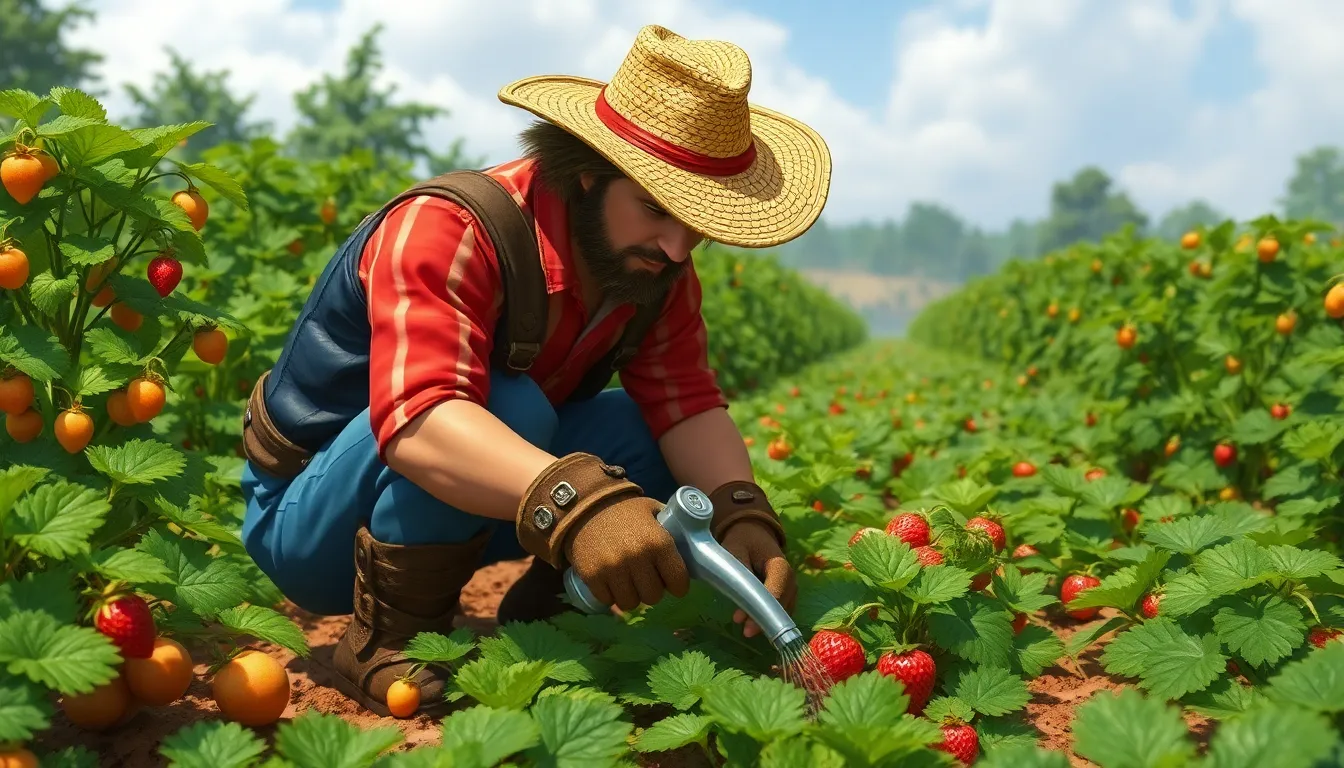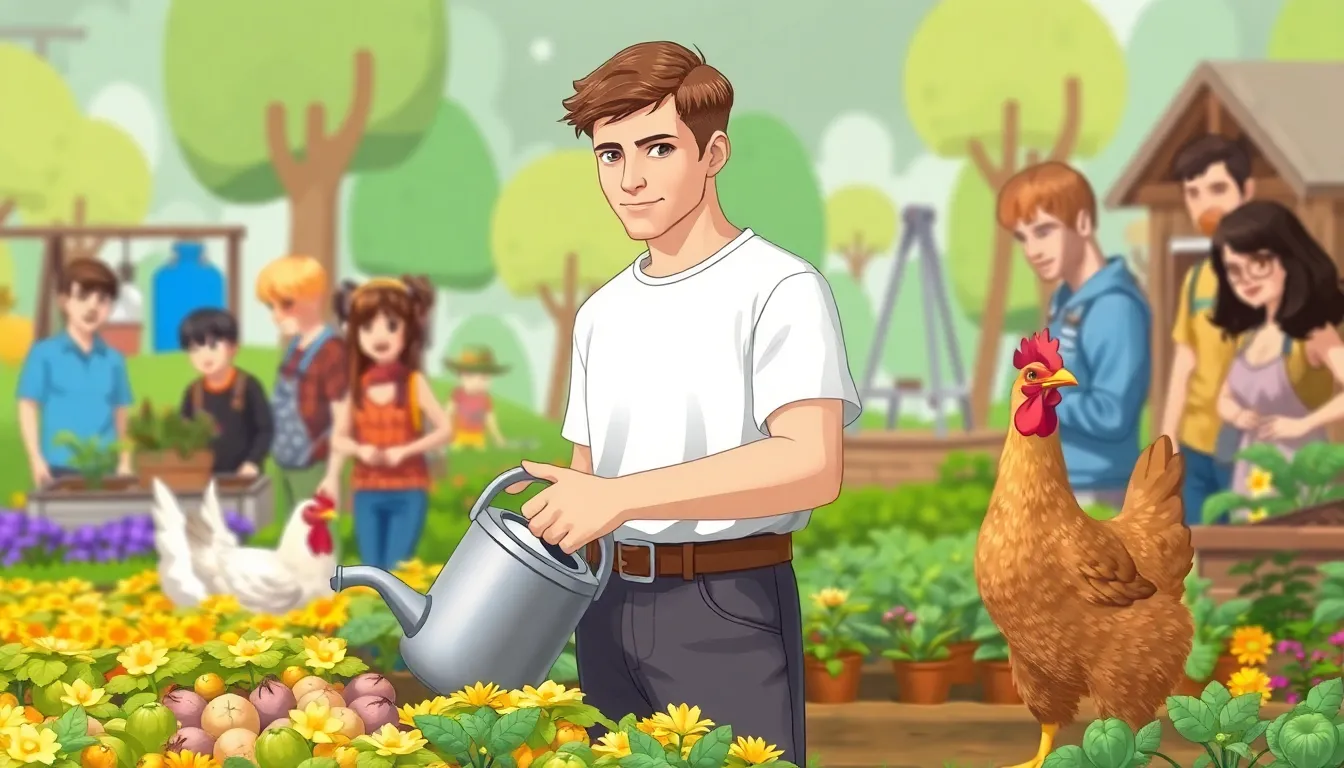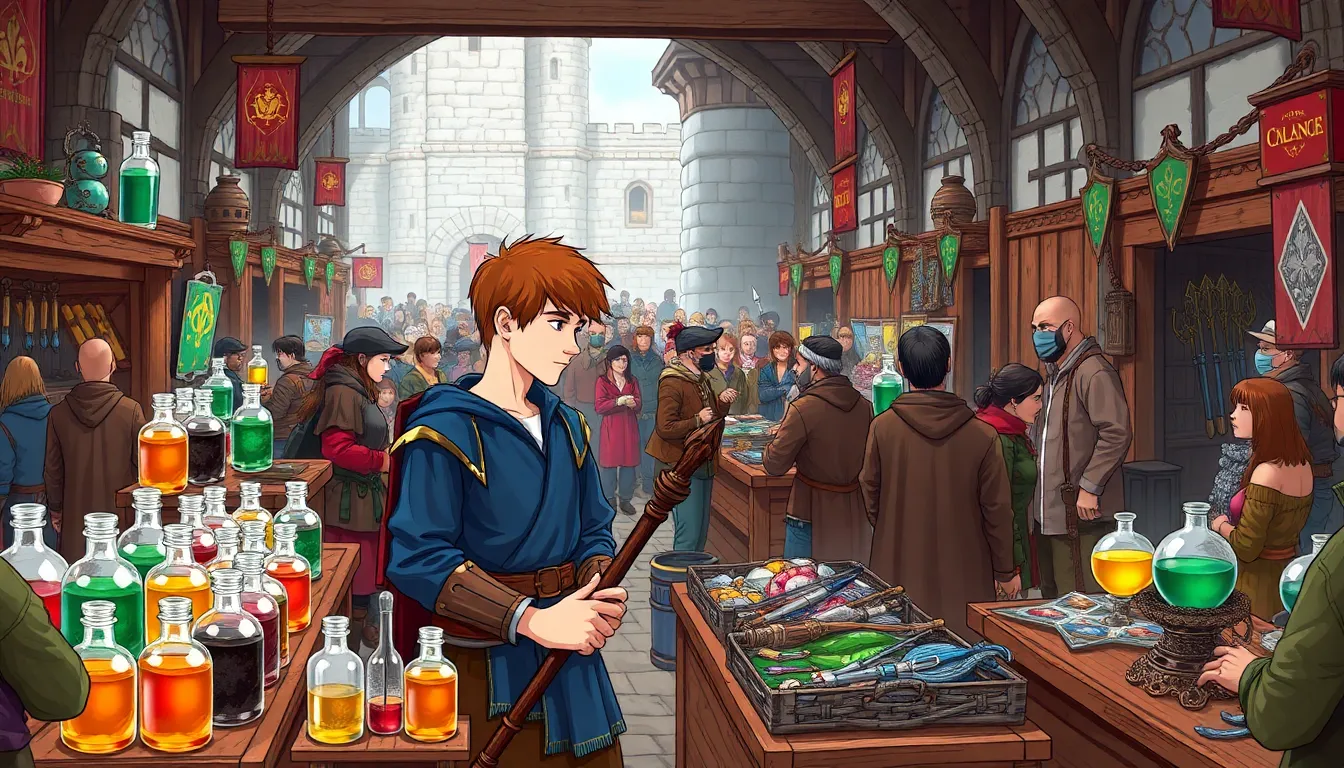In the vast world of RuneScape, farming isn’t just about planting seeds and waiting for crops to grow; it’s an adventure filled with strategy, patience, and the occasional mishap involving a rogue chicken. Whether you’re a seasoned player or a newbie trying to figure out why your potatoes keep disappearing, farming offers a unique blend of challenges and rewards that can make or break your in-game fortune.
Table of Contents
ToggleOverview of Runescape Farming
Farming in RuneScape encompasses multiple aspects that enhance gameplay. Players engage in planting seeds, growing crops, and harvesting them for various resources. Tasks such as monitoring growth stages and caring for plants require strategic planning and time management.
The skill level influences the types of crops available, with higher levels unlocking more lucrative options. For example, melons yield a higher return than potatoes, making them a preferred choice among experienced players. Managing farming contracts presents an additional layer, offering rewards for completing specific tasks.
Unexpected events also contribute to the immersive experience. A rogue chicken may disrupt planting or harvesting, adding humor to the activity. Seasoned players find that building relationships with farm animals increases yield and efficiency during gameplay.
Additional skills, such as herblore and cooking, complement farming, showcasing the interconnected nature of skills in the game. An effective farming strategy incorporates multiple crop types and gathering resources for potion-making or food preparation.
Locations throughout RuneScape serve distinct farming purposes. The allotments in places like Lumbridge offer easy access for beginners, while advanced players often prefer the high-reward farming patches in places like Prifddinas. Understanding these locations helps optimize farming efforts and maximize potential gains.
Engagement in farming can significantly impact overall success. Players looking to advance their skills often find that strategic farming enhances their ability to thrive in quests and challenges throughout RuneScape.
Getting Started with Runescape Farming

Farming in RuneScape involves various mechanics and skills, making it essential for players looking to enhance their game experience. Understanding these elements allows for successful crop management and resource gathering.
Understanding Farming Mechanics
Farming involves planting seeds in designated patches, enabling crops to grow over time. Players can use tools like a spade and watering can to assist. Crops require attention to thrive, with some needing more time and care than others. Events such as weather changes or pest infestations can occur, adding unexpected challenges. Strategic planning is crucial when selecting crops, as different varieties yield different resources. Farming patches exist throughout RuneScape, including areas like Taverley, Catherby, and Ardougne. Knowing where to locate these resources contributes to more effective farming practices.
Required Skills and Levels
Skill levels dictate the types of crops available for planting. New players start with basic crops, like potatoes and onions. Higher levels unlock more profitable crops, such as watermelon and strawberry. Leveling up the Farming skill also grants access to farming contracts, boosting rewards for completing tasks. Players can gain experience through various activities like planting, harvesting, and watering. Specific quests further enhance farming skills, providing additional experience points. Balancing skill enhancements with crop management leads to greater efficiency and success in farming endeavors.
Types of Crops in Runescape Farming
Farming in RuneScape offers diverse crop options. These range from herbs to trees, each with unique traits and uses.
Herbs
Herbs serve essential roles in crafting potions and enhancing combat. Players can start with basic herbs like guam and move on to more complex varieties such as toadflax and snapdragon. Each herb requires specific farming levels and conditions to grow successfully. Players often gather herbs in various patches, including those found in Taverley and Catherby. Growth times vary, with some taking mere minutes and others requiring longer periods. Using the right tools also impacts herb yield and quality.
Vegetables
Vegetables provide valuable resources for cooking and training other skills. Potatoes, onions, and carrots appeal to early-game players due to their accessibility. As players advance, options expand to include more lucrative crops such as watermelons and sweetcorn. Vegetables require regular care and attention to thrive fully. Engaging with farming contracts can reward players for completing specific vegetable growth tasks. Varied growth times influence planning, as some vegetables mature quickly while others take more patience.
Trees and Fruit Trees
Trees and fruit trees offer significant benefits, including woodcutting and harvesting fruits. Players start with standard trees like oak and can progress to higher-level options like yew and magic trees. Fruit trees, such as apple and banana trees, yield fruit for cooking or crafting. Planting these trees requires more space and time than regular crops. Fruit trees often mature faster than regular trees, making them more appealing for consistent harvests. Utilizing the right fertilizers impacts fruit yield quality and quantity significantly.
Farming Minigames and Activities
Farming minigames and activities enhance the farming experience in RuneScape. Engaging in these diverse tasks provides players with additional rewards and opportunities for skill improvement.
The Farming Guild
The Farming Guild serves as a central hub for farming enthusiasts. Accessing this guild requires a level of 45 Farming. Inside, players find various features, such as specialized farming patches and the ability to cultivate all crop types more efficiently. Members enjoy exclusive perks like the ability to enter the guild’s herb farming area, which contains higher-level crops. Completing farming tasks here also contributes to player achievements and offers rewards. Utilizing the guild’s resources, farmers can maximize their potential and effectiveness in crop management.
The Tree Gnome Stronghold
The Tree Gnome Stronghold provides another engaging farming location. This area offers a quest line that enhances farming capabilities while exploring the Gnome’s farming practices. Completing quests unlocks additional farming patches and unique crops. It features a range of trees that yield diverse fruit types for players. Players can regularly visit these patches to manage tree growth and reap profitable harvests. The Gnomes’ innovative farming techniques also inspire players to refine their own approaches, fostering a more dynamic gameplay experience.
Farming in RuneScape offers a unique blend of strategy and creativity that captivates players. As they navigate the complexities of crop management and animal care, they develop essential skills that enhance their overall gameplay. The variety of crops and the challenges involved keep the experience fresh and engaging.
With the right tools and knowledge of farming patches, players can maximize their yields and unlock the full potential of their farming skills. Joining the Farming Guild or exploring locations like the Tree Gnome Stronghold adds depth to the farming journey, encouraging players to refine their techniques. Ultimately, farming not only contributes to a player’s success but also enriches the immersive world of RuneScape, making it an activity worth pursuing.








